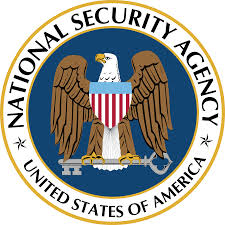
Our project is a research project comparing government surveillance in China, the United States, and the fictitional Oceania from the novel 1984. China and the fictitional Oceania are widely understood to be authoritarian states, the United States prides itself on being "the land of the free." What we found was that what is widely understood is the United States is not as different as imagined and that widespread surveillance typical of totalitarian societities is taking place in the United States.
For example, the widespread use of surveillance cameras in public places is practiced in both China and the United States, this footage is accessible by the national government's surveillance apparatuses, and both are pioneering the use of facial recognition software in order to make this surveillance even more effective. Compare this to the ubiquitous telescreens of 1984, which allow the Thought Police constant streaming footage of entire cities. China and the US don't have effective indoor surveillance yet, but even this is changing. For example the FBI has the ability to remotely turn on laptop webcams and it has been reported that police are using heat sensors that can detect from the street, if someone is in their home.
Next consider communications. In the fictitional Oceania, all written communication is monitored and there is essentially no indoor place where one could have a conversation that has not been recorded. In our more high-tech society in modern times, things are more difficult for the government, but still, all phone calls, all text messages, and all Internet usage, including email, can be tapped and recorded by the NSA, and similar capabilities exist for the Chinese government's surveillance program.
In China and Oceania, repression is pretty outright. The governments make no false claims of caring about liberty. China openly blocks websites and jails journalists. In Oceania, there is hardly any need to surveil speech or the press, since everyone self-censors anyway. Similarly, people in the US are being more careful on the Internet now that they know they're being watched and as whistleblowers have been prosecuted and jailed and this has had a chilling effect on the free press.
The situation is clear. While open repression in the United States is not very bad, yet, there's certainly nothing stopping it from getting there. We, as a country, need to have a discussion about what we want our society to look like, and if we're willing to allow these changes to happen. The "liberty vs. security" debate is not unique to America. In China and the fictitional Oceania, the same justifications were used: these violations of your privacy and freedom are for your protection. Do we believe it? Will we accept it?
The People's Republic of China is considered to be an authoritarian regime. Oceania is a fictional totalitarian regime in the novel, "1984." How do they compare to the police state that the US has become? Our project was a literal chart comparing the similarities and differences of surveillance and repression in China, the US, and the fictional Oceania.



